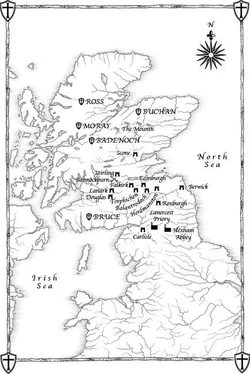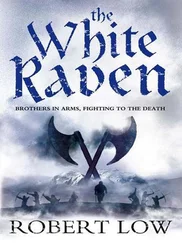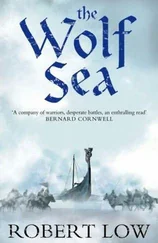Robert Low - The Lion Rampant
Здесь есть возможность читать онлайн «Robert Low - The Lion Rampant» — ознакомительный отрывок электронной книги совершенно бесплатно, а после прочтения отрывка купить полную версию. В некоторых случаях можно слушать аудио, скачать через торрент в формате fb2 и присутствует краткое содержание. Год выпуска: 2013, Издательство: HarperCollins Publishers, Жанр: Исторические приключения, на английском языке. Описание произведения, (предисловие) а так же отзывы посетителей доступны на портале библиотеки ЛибКат.
- Название:The Lion Rampant
- Автор:
- Издательство:HarperCollins Publishers
- Жанр:
- Год:2013
- ISBN:нет данных
- Рейтинг книги:4 / 5. Голосов: 1
-
Избранное:Добавить в избранное
- Отзывы:
-
Ваша оценка:
- 80
- 1
- 2
- 3
- 4
- 5
The Lion Rampant: краткое содержание, описание и аннотация
Предлагаем к чтению аннотацию, описание, краткое содержание или предисловие (зависит от того, что написал сам автор книги «The Lion Rampant»). Если вы не нашли необходимую информацию о книге — напишите в комментариях, мы постараемся отыскать её.
The Lion Rampant — читать онлайн ознакомительный отрывок
Ниже представлен текст книги, разбитый по страницам. Система сохранения места последней прочитанной страницы, позволяет с удобством читать онлайн бесплатно книгу «The Lion Rampant», без необходимости каждый раз заново искать на чём Вы остановились. Поставьте закладку, и сможете в любой момент перейти на страницу, на которой закончили чтение.
Интервал:
Закладка:
Edward, blinking and uncertain at what he had created, tried a harsh laugh which came out too squeaked to be reassuring. The noise of voices and rasping last-minute whetstones on blades seemed suddenly deafening.
‘If the Scotch are standing,’ d’Umfraville offered into the awkwardness, ‘then we should reorder, Your Grace.’
Attentions were all sucked back into the moment; heads turned to the dark line of enemy and Edward frowned, stood up a little in his stirrups and pointed one mailled fist.
‘They are not standing, they are kneeling,’ he declared and then beamed. ‘Are they asking for my mercy?’
D’Umfraville, who had clearly had enough, almost spat and nearly choked on swallowing it.
‘No, lord King,’ he managed to rasp out politely. ‘They beg forgiveness, certes, but not from you. From God. They will win or die this day, it seems.’
The King scowled blackly at the admiration he heard in that voice, but the sudden great blare of horns made them all jerk; a few horses were taken aback, bounced and baited. Horrified, everyone saw the dark line seem to swell.
‘We should beg our own forgiveness,’ d’Umfraville added, ‘for they are not standing nor kneeling, my lords, but coming down on us.’
‘God’s Blood,’ de Valence bellowed. ‘Too late. Too late.’
Too late, Addaf thought with belly-clenching terror, to get the horse out of the way and the foot forward. Too late, as it was at this place’s bridge seventeen years ago, when the Scots of Wallace and Moray came down on the English, trapped in the coils of the river.
Now they were trapped again, and again by their own making, the reassurance against night attack of the streams and ditches on three sides now a deadly bag. Addaf remembered the last time, the frantic rabbit-running, throwing away everything he had save the bowstave itself, the desperate plunge into the river, the floundering like a wet cat to drag himself out, panting and half-drowned.
He turned, stunned as if by a blow to the temple, and Sir Maurice Berkeley saw it, saw the same look on other lordly faces around him and the bewilderment of those they led, waiting for orders that did not come.
‘Ware archers,’ he bawled, throwing one iron fist to his right. Heads turned and men fell into the unconscious movements that braced the stave and felt for the bowstring, though they would not string the bows until ordered by Addaf.
‘Addaf Hen,’ Maurice roared and that jerked the man as if stung, so that he seemed to shake himself like a dog, looked at his lord, then to where he pointed; enemy flitted like starlings, working their way to the flanks of the army and protected from horse by the steep-sided ditch of a tidal run Addaf had heard called the Pelstream.
‘Smart your sticks,’ Addaf bawled, starting to feel the reassurance that came with familiar things. ‘Pick your targets, look you. Shoot only when I say.’
Even as he had them nock and draw, he could feel the sick, leprous presence of that great mass rolling down on them, like a fever heat down the side of his body. He did not want to turn and look.
In the camp under Coxet Hill, they had lit a glare of fires and danced round them all night — the young, single girls had to circle and prance round seven of them if they wanted to marry the next year and they were diligent in it. They had eaten the destiny cakes, though there was more pea and straw in them than good barley or wheat. They’d made wishes on wisps of straw, which were burned and sent as dangerously flaming embers into the hot night sky.
It had ended with Threading the Needle, a skein of folk moving in a seemingly endless dreamy dancing procession to the sound of drum and viel and fipple flute.
Now in a rising-hot St John’s Day of ash and bad heads, Hal saw a mood of resentment move towards where he sat with Sir John Airth, enjoying the brief cool of the morning. Sir John, red-faced, big-bellied and with a beard like a great burst of dirty wool, had not slept well for the loss of his son sat heavy, while the noise and his gouty leg was no balm; he was scowling at the shuffling group even before they spoke.
Hal was no better, for he could hear the horns and had seen men clattering off, late to muster and clutching their gear, hopping with one shoe on. He wanted so badly to be with them that it was a bone ache, though not as deep as the one which had replaced Sim in his heart. Added to that was the dull fire in his wounded arm, while his face, still splendidly blue and yellow, thumped like a bad tooth.
The guard stopped the men coming closer, but they stood in a nervous huddle, with one thrust out in front and clearly expected to speak for them all; Sir John waved them forward.
‘Well?’
The spokesman was an average man in all but forearms, which came from working the handquern. Hal had seen him endlessly turning it to grind what poor grain folk brought to him to be milled, taking a tithe of it for himself as payment.
‘Beggin’ the blessings of your lordship,’ the man began, twisting his felted cap in his hands and then indicating the men behind him with a nervous flap of one hand. ‘I have been asked to speak to your lordship on a matter.’
‘Name?’ demanded Sir John. ‘Who are you, man?’
‘Begging yer blessing, sir, John of Noddsdale, sir. Miller to Sir Robert Boyd, God bless and keep him.’
Hal saw Sir John close his eyes briefly and sympathized, for John the Miller of Noddsdale had a voice like the whine of a stonemason’s saw and was, for all his nervousness, clearly impressed at having been picked from the pack to speak for them. It was not, Hal thought wryly, because he had the finest voice, nor because he was most respected, but the opposite; he would not be sadly missed if Sir John decided to hang him out of hand.
The gist of it was clear enough. The pack behind whining John were all in this camp at the behest of some lord now setting himself to battle. They had been left out of matters and did not care for it much.
‘We wish tae fight, Sir John,’ the miller finished. ‘Yet we are held here by yer wish.’
‘The King’s wish,’ Sir John answered flatly. ‘If you were proper called-out men you would come with an iron hat, a coat of plates or a gambeson, a long spear and another blade. Have you such?’
The men shifted and shuffled. They had seen others of their rank and station handed iron hats and spears, but there had not been enough for everyone and they had been given to ones who had been here for some time and seen at least a measure of training in their use. These were the come-lately men and they knew it. Someone called out that they had made spears and waved a shaft with a lashed-on hand-scythe. Hal smothered a smile.
‘There you have yer answer,’ Sir John growled dismissively. ‘A heuch on a pole, carried by an unarmoured, bareheaded chiel of no training and less account is of no use to the King.’
It was harshly said, from the lips of a man crushed under the loss of his son that very morning, killed at Cambuskenneth by a petulant swipe from the Earl of Atholl. These folk did not know that, Hal saw, or care. Faces darkened.
‘Others are going, slipping away,’ John of Noddsdale blurted out daringly. ‘Chiels from beyond the Mounth. Women amang them.’
Now Hal grasped it; the women and older bairns, men too old to fight and those who had contrived to avoid it, were sneaking out, hunkering down at the fringes to wait and watch for a chance to plunder the dead, and these men wanted a share of it. Fighting was not in it at all and they saw the sneer on Hal’s face when he stood up; there were some brief, defiant glances, but all of them lowered their heads in the end and shuffled, shamed.
Yet Hal could see the beast of it almost unleashed. The camp was full of men and women like this, anxious for their loved ones already fighting, struggling with hunger and thirst and fearful of the outcome. They would want something plucked from it, no matter who won, and if thwarted would cause more trouble than could be controlled.
Читать дальшеИнтервал:
Закладка:
Похожие книги на «The Lion Rampant»
Представляем Вашему вниманию похожие книги на «The Lion Rampant» списком для выбора. Мы отобрали схожую по названию и смыслу литературу в надежде предоставить читателям больше вариантов отыскать новые, интересные, ещё непрочитанные произведения.
Обсуждение, отзывы о книге «The Lion Rampant» и просто собственные мнения читателей. Оставьте ваши комментарии, напишите, что Вы думаете о произведении, его смысле или главных героях. Укажите что конкретно понравилось, а что нет, и почему Вы так считаете.











